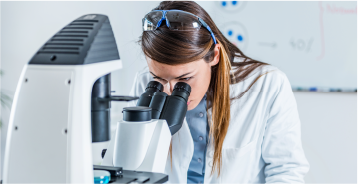Nov 17, 2025
Congratulations! Pregnancy is an exciting journey, and what you eat plays a very important role in supporting health and the healthy development of your baby. At Bestmed, we’re Personally Yours every step of the way because this chapter of life is all about care, comfort and confidence. Healthy mom, happy baby – that’s the Bestmed way!
Fuelling your body: calories needed and a balanced diet
You may feel like you need ‘to eat for two’, but you don’t need double the amount of food on your plate. Most women don’t need extra energy during the first trimester. However, you’ll need about 340 extra calories (1428 kJ) extra energy per day during the second trimester. This energy may be found in, for example, two slices of brown bread and two boiled eggs, or yoghurt with seeds. By the third trimester, you’ll need about 450 extra calories (1890 kJ) extra energy per day. The third trimester is the perfect time to add a pregnancy-safe shake, or an extra wholesome snack to your meal plan.
Bestmed tip: Aim to eat nutrient-dense foods, not empty calories. You and your baby need all the good stuff for energy. Aim for a balanced diet that includes:
- plenty of fresh fruits and vegetables. They provide essential vitamins, minerals and fibre. Try to eat a variety of colours like orange (carrots, butternut, peaches, oranges, papaya, kumquats), yellow (yellow bell peppers, bananas, pineapple, sweetcorn), green (spinach, cabbage, rocket), purple (beetroot, blueberries, brinjals, plums, grapes), etc. Get creative with your meals!
- whole grains. Choose whole wheat / low-GI bread, oats, brown rice, and quinoa for energy and fibre. Starchy vegetables like butternut, pumpkin, sweet corn and sweet potatoes are also high in fibre.
- lean protein. Beans, lentils, poultry, fish, eggs and lean red meat support your baby's growth.
- dairy or fortified alternatives. Milk, yoghurt and cheese are great sources of calcium and protein.
Bestmed tip: If your plate looks like a paint palette, you’re doing it right!
Power nutrients: Your pregnancy essentials
Certain nutrients are particularly important during pregnancy. While a good prenatal vitamin helps fill the gaps, food sources for nutrients are always the best choice.
1. Folate (active folate / methylfolate or folic acid)
- Why it matters: prevents neural tube defects (NTDs)
- Food sources: dark leafy greens, beans, lentils, citrus fruits, fortified cereals
Bestmed care note: Folate is like the superhero cape for your baby’s brain and spine. Don’t skip it!
2. Iron
- Why it matters: supports increased blood volume and prevents anaemia
- Food sources: lean red meat, poultry, beans, lentils, spinach
- Tip: pair iron with vitamin C for better absorption
Bestmed care note: Think of vitamin C and iron as your best friends. They always work better together!
3. Calcium and vitamin D
- Why they matter: important for strong bones, teeth and muscle function
- Food sources: milk, yoghurt, cheese, fortified plant milks, fatty fish and sunshine
Bestmed tip: Get little sun and drink a glass of milk daily. They’re nature’s wellness duo!
4. Omega-3 fatty acids (especially DHA)
- Why it matters: brain and eye development for baby
- Food sources: salmon, sardines, pilchards, trout
Bestmed care note: DHA is like Wi-Fi for your baby’s brain. Keep the signal strong!
Food safety: protect yourself and your baby
Food safety is crucial during pregnancy because certain bacteria and parasites, like Listeria and Toxoplasma, can be very harmful to a developing fetus, even if they only cause mild illness in the mother.
Pregnancy means extra caution with food safety
- Avoid unpasteurised dairy and soft cheeses, like feta, brie, camembert and blue-veined cheeses, unless the label explicitly states that its pasteurised.
- Cook meat thoroughly. Do not eat rare steak at all. The minimum internal temperature to kill bacteria is 63℃ for steaks, and at least 74℃ for most other foods.
- Reheat deli meats until they’re steaming hot.
- Wash all produce like it’s going to a spa. Make sure they’re very clean and fresh.
- Choose low-mercury fish, like pilchards and salmon.
Bestmed care note: If in doubt, heat it out! Food safety should come first for you and your little one.
The news is your friend
keep an eye on the news and public health websites for food contamination outbreak reports. Agencies, like the Centers for Disease Control and Prevention (CDC), issue alerts about recalls or outbreaks linked to specific products. Always be aware so that you can avoid contaminated food to keep you and your baby safe from potential illness.
Bestmed Tip: Knowledge is power and peace of mind.
Essential hydration
Water is another critical nutrient during pregnancy. You need more water to support the increased blood volume and amniotic fluid. Aim to drink about 8-12 glasses of water, low-fat milk, or other healthy beverages daily.
Cravings and aversions
Cravings and aversions during pregnancy are common. While it’s okay to indulge a craving sometime, it’s important to eat a healthy, balanced diet. If aversions (like vegetables or meat) make healthy eating difficult, talk to your dietitian or doctor about practical alternatives.
Bestmed care note: When your body whispers ‘chocolate’, answer with a smile and a sensible portion. Wellness is about joy, not guilt.
Pregnancy is a time to nourish yourself and the new life growing within you. Your diet should include whole, unprocessed foods. You should also prioritise your intake of key nutrients and be vigilant about food safety.
At Bestmed, we’re here to make sure you feel supported, informed and cared for because your journey is uniquely yours.
 Health and Wellness
Health and Wellness